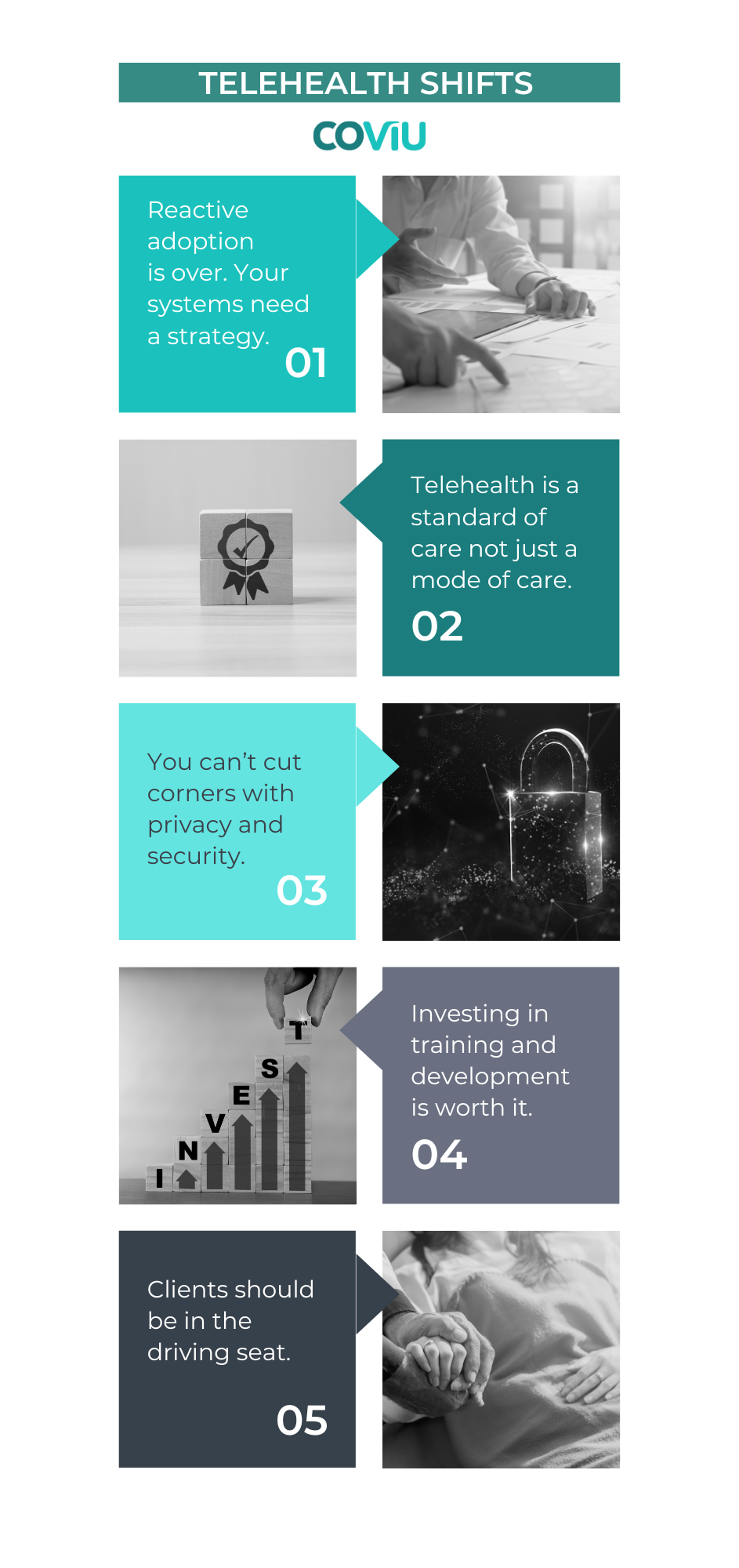Telehealth is a Standard of Care in 2024
With insights gained from the pandemic's consequential digital health test ground, the opportunity to make informed decisions about telehealth as a standard of care emerges. This article marks the inaugural piece of our 2024 Future of Digital Health Series.
We Learned a Lot from Covid Telehealth Use
During the pandemic, the rapid adoption of telehealth using unsuitable tools led to numerous problems, including privacy, security, and integration issues, to name a few. The abrupt shift, often without a strategy or sufficient training, intensified challenges for clinicians, many of whom continue to grapple with the memory of unprepared telehealth implementation.
The silver lining is that Covid unintentionally served as a digital health test ground, underscoring the need for a more considered approach. With the space and choice to do so, clinicians can leverage these lessons for a new era where telehealth's true potential is realized. As we enter 2024, Coviu encourages clinicians to reassess their perspectives on telehealth, addressing issues from its widespread use during the Covid era, to unlock a new healthcare era.
Telehealth Paradigm Shifts for 2024
In the pursuit of transformative shifts for the New Year, it becomes evident that reactive adoption is well and truly a thing of the past. A shift towards strategic digital health planning harmonized with long-term healthcare objectives, signifies a departure from responsive approaches. Acknowledging telehealth as a standard of care, the emphasis lies in embracing a blended care model that seamlessly integrates in-person and digital services for optimized patient outcomes. Simplicity becomes paramount in telehealth, urging a focus on user-friendly platforms such as Coviu, that enhance the experiences of both clinicians and patients.
Privacy and security take center stage, demanding a heightened emphasis on data security measures to ensure confidentiality during telehealth sessions. Recognizing the worth of comprehensive training and education, there is a collective acknowledgment of the importance of upskilling healthcare professionals to maximize the benefits of telehealth. Embracing a patient-centric approach, the narrative also shifts towards empowering patients, aiming to enhance their engagement, satisfaction, and personalized care.
Furthermore, clinicians now understand the necessity for a well-thought-out plan to foster interoperability between telehealth platforms and existing healthcare systems, acknowledging that systems cannot effectively work together without a strategic framework. Finally, informed decision-making gains prominence, with a focus on leveraging research efforts to establish evidence-based practices in telehealth, thereby informing guidelines and best practices for clinicians.

Telehealth has a lot of Benefits but you need a Strategy
The point in adopting these shifts, is that telehealth plays a crucial role in addressing healthcare challenges, offering solutions for staff shortages, burnout, geographic limitations, and chronic illness management. Clinicians should carefully select and implement suitable platforms under a blended care model, learning from past experiences rather than dismissing telehealth based on initial setbacks.
Unlocking telehealth's potential requires recognizing its suitability varies across contexts. Employing clinical appropriateness tests and embracing a blended care model can optimize its effectiveness.
Coviu's Future of Digital Health series provides practical tips and best practices for professionals seeking to elevate their practice through digital healthcare as we enter 2024.
Invest in a Purpose-Built Telehealth Solution
To make the transition easier, Coviu, a purpose-built telehealth platform for healthcare professionals has all the features, is easy to use, and meets the standards you need to take your practice to the next level.

Start a 2-week free trial and start running consultations within just minutes! To learn more about Coviu book a call with one of our friendly team members here.




